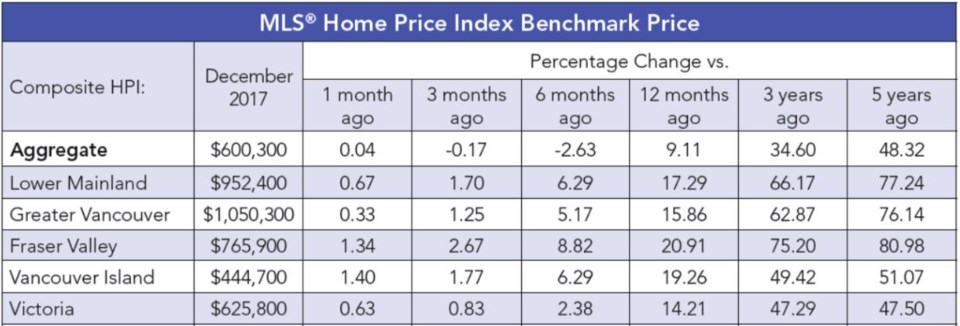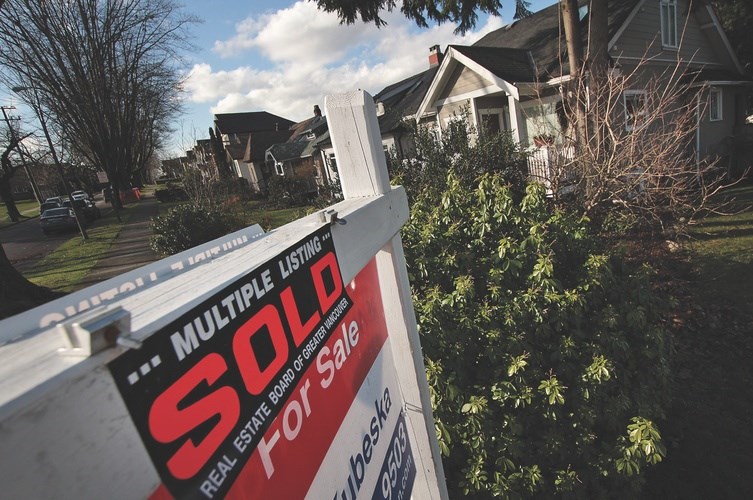The saw its first increase in four months in December – but that’s almost entirely due to the hot Â鶹´«Ă˝Ół»market, Teranet reported January 12.
The national home price index, which is a composite of all home types in Canada’s 11 largest real estate markets, increased 0.18 per cent in December compared with the previous month, which is a 9.07 per cent increase from December 2016.
But this is not down to a general improvement in the national housing market as a whole. Rather, it’s mostly attributable to the jump in prices in Greater Vancouver, which more than offset declines in other large markets, according to Teranet.
The report said, “The one-tick rise of the composite index was due to a 1.3 per cent jump of the index for the large Â鶹´«Ă˝Ół»market. The other indexes showing gains were Winnipeg (1.9 per cent), Halifax (1.9 per cent), Ottawa-Gatineau (0.4 per cent) and Edmonton (0.1 per cent); without Â鶹´«Ă˝Ół»their combined gain would not have offset the combined decline of the indexes for Toronto (-0.3 per cent), Victoria (-1.0 per cent), Calgary (-0.6 per cent), Hamilton (-0.5 per cent) and Montreal (-0.2 per cent).”

Ěý
Teranet’s December index was published a few days before the Canadian Real Estate Association (CREA) issued its December statistics January 15.
CREA reported, “After having dipped in the second half of last year, composite benchmark home prices in the Lower Mainland of British Columbia have recovered and now stand at new highs (Greater Vancouver: +15.9 per cent year-over-year; Fraser Valley: +20.9 per cent year-over-year).”

Ěý
CREA’s monthly statistics are based purely on sales, as opposed to Teranet’s figures, which are based on land title registrations.



